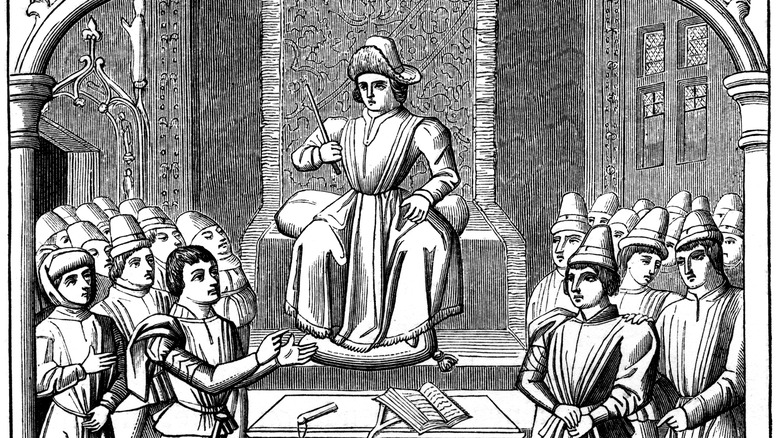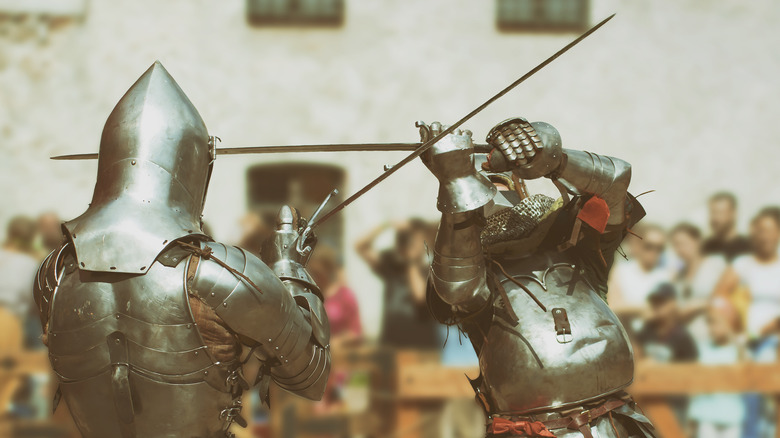Inside The Bizarre Legal Case Of The Count Gero Of Alsleben
In A.D. 979, a count and probable descendent of a local hero strangely met his death despite winning a duel (via Executed Today). Gero, Count of Alsleben, a small town that still exists in central Germany, was likely the grandson of Gero I, also known as Gero the Great. According to Theodora, Gero I was given the task of defending the eastern frontier of Saxony against the many warring tribes of the region. He did so well that he actually expanded his kingdom's borders, forced the Polish king to submit, and left behind a conquered area so large it was named after him and eventually split into five parts. Gero the Great's influence was so vast that a character based on him features in a famous epic poem scribed a couple of centuries past his death.
Less has been written about his supposed grandson, Gero of Alsleben. Europe was in its Dark Ages, and this Gero commanded a meager fraction of the land his grandfather did, and therefore a meager fraction of real estate on the pages of history. In fact, much more has been written about his death than his life.
Gero both won and lost his duel
According to Executed Today, Gero arose the ire of a knight named Waldo sometime in A.D. 979. The squabble's instigator and cause have been lost to history, but it was decided by a judicial authority that the two would duel on August 11, 979, in front of a herd of scribes who would preserve the bizarre battle for the centuries to come.
Both men got their shots in early, but Waldo soon gained the upper hand and delivered a stunning blow to Gero that sent the count sprawling. Waldo approached his prey, preparing to deliver the killing blow ... and keeled over, to the shock of everyone in attendance, most of all Gero. It seems the count had struck the knight on the neck, who could have died from internal bleeding or an open wound. Gero was victorious! Except, not. The Holy Roman Emperor determined that Gero deserved to be executed, and the count was promptly beheaded that evening, despite his decisive — albeit strange — duel victory. While we'll never know the cause of their spat, judging from the emperor's reaction, it seems the count was at fault.

